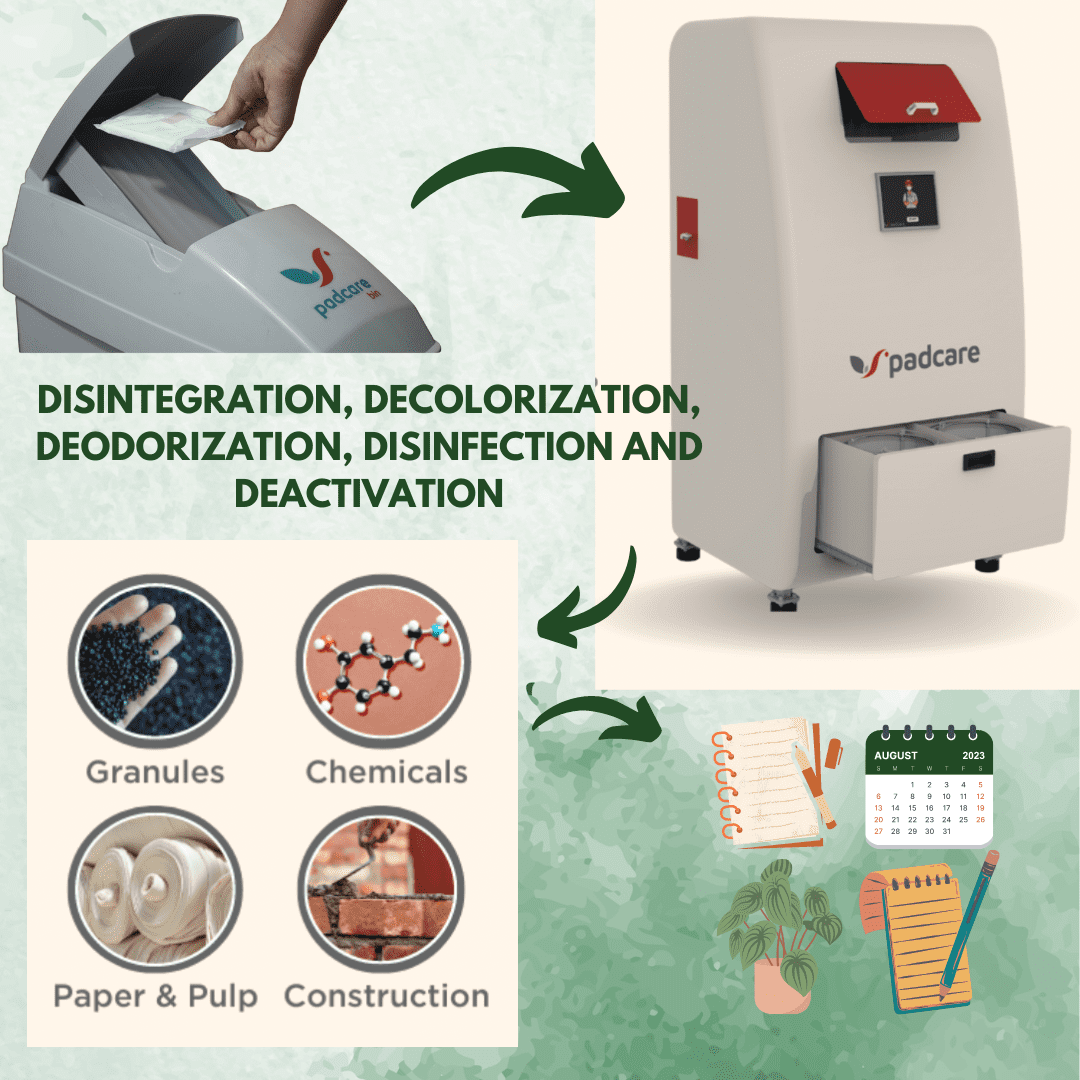
12.3 billion – that's the number of used sanitary pads dumped in landfills in India each year. Each of these non-organic sanitary pads, amounting to 1,13,000 tonnes, have a footprint four times that of plastic bags. It could take as much as 800 years for a single pad to break down, and certain pads might never decompose at all. These dumped used sanitary pads not only load the landfills but also nurture bacterial breeding grounds. The conundrum looms: How can we preserve this vital aspect of women's health, while also curbing plastic pollution? And with growing awareness about sanitary pads, are we equally vigilant about the proper segregation and disposal of these essential yet potentially hazardous items? Amidst such a dilemma, alternatives like tampons and menstrual cups come to the fore, demanding nearly 80% less plastic than sanitary pads. Tampons are crafted from cotton blends while menstrual cups are silicone-based. Notably, menstrual cups can be used for up to six months. However, in India, 64.4% women opt for sanitary napkins, while 1.7% use tampons and only 0.3% use menstrual cups. One might wonder that with two eco-friendly alternatives available, why is there such a reliance on sanitary pads? The answer lies in the intricacies of usage associated with these alternatives. While menstrual cups and tampons demand careful insertion, a sanitary pad is a hassle-free choice. Cleaning a menstrual cup post-use is essential, whereas a sanitary napkin offers straightforward disposal. This predicament compels us to seek an innovative solution – a technology that allows women to use sanitary pads without harming the environment. PadCare Labs’ Innovative Pursuit PadCare Labs, founded by a 20-year-old engineer Ajinkya Dhariya, came up with a technology that involves a circular process of converting discarded pads into reusable components. PadCare X, an innovative 5-D machine, breaks down used pads into pulp and plastic through disintegration, decolorisation, deodorisation, disinfection, and deactivation. The extracted pulp serves various applications in the fertilizer and paper industry. PadCare Labs repurposes this pulp into decorative items and stationery. Furthermore, the plastic is transformed into granules, which play a pivotal role in crafting the PadCare bins that later collect the used sanitary pads. In just two years of operation, PadCare Labs' impact is undeniable. With 1,34,200 pads recycled to date, their endeavors have saved the environment from 7,179 kg of carbon emissions, while conserving 1,677 litres of landfill expanse. This story serves as a testament to the profound impact a single individual can have on the environment through innovation. Through collective effort, we possess the ability to tackle the global challenge of handling 200,000 tonnes of menstrual waste each year. Every person can play their part by simply segregating menstrual waste from regular household refuse, and raising awareness about the detrimentall consequences of conventional sanitary pads. Together, we can drive meaningful change towards a more sustainable future.
28 Aug 2023
Sanjh Jindal